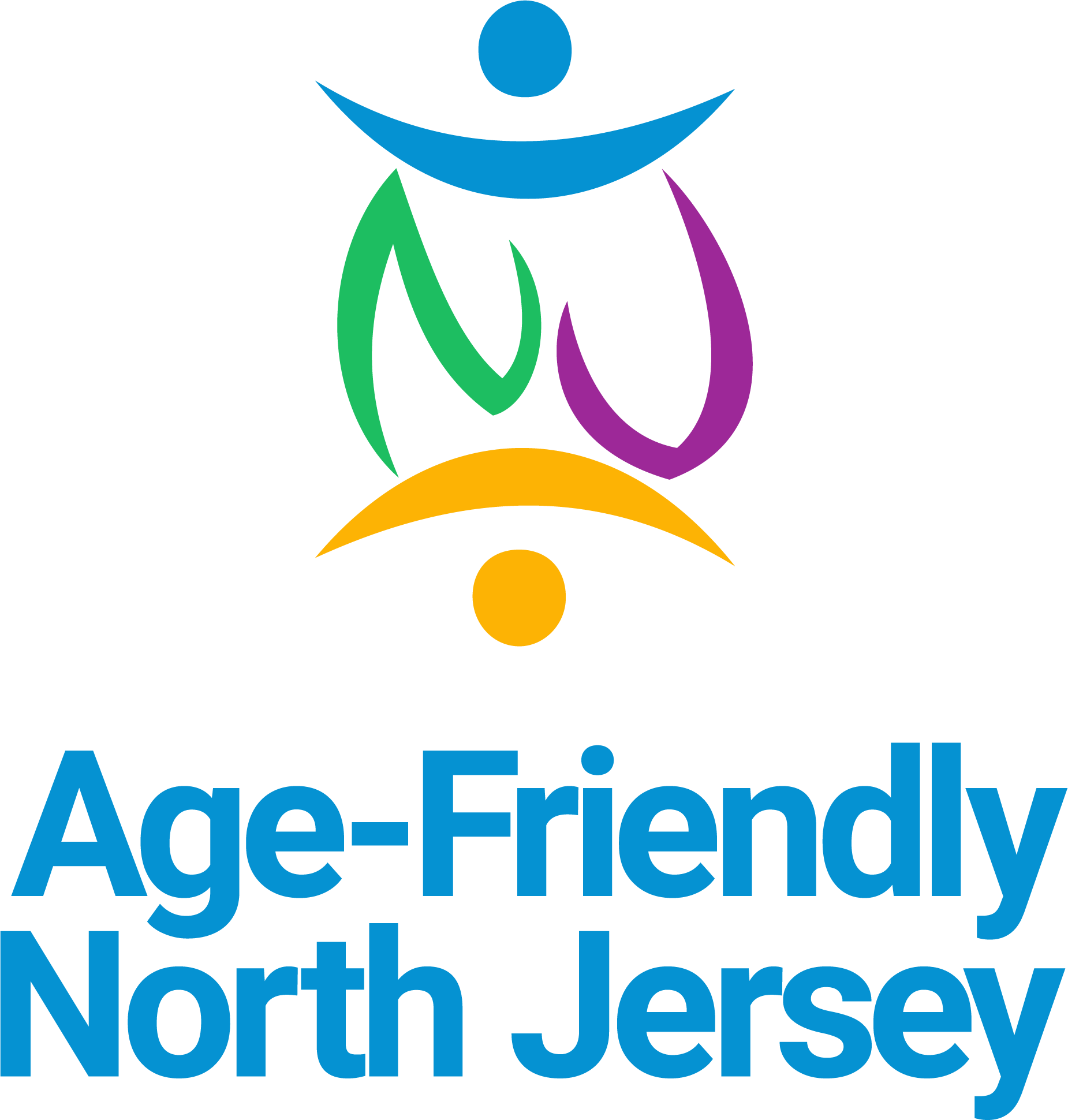Creating environments for healthy aging is the bedrock of age-friendly community work.
It’s not surprising, therefore, that efforts to strengthen New Jersey’s public health system intersect in many ways with efforts to seed and sustain age-friendly community initiatives in the Garden State.
Even the aspirational symbols look the same, points out Shannon Doherty Lyons, one of the leaders of the Generations for Garfield age-friendly initiative and a senior fellow in the New York University Aging Incubator program.
In public health circles, much emphasis is now placed on what’s called the “social determinants of health,” which are often depicted in a wheel image. In age-friendly circles, the talk is of the “eight domains of livability,” which AARP also illustrates in a wheel-shaped graphic.
“Put the wheel of the social determinants of health next to the wheel of age-friendly domains, and many of the words and phrases are the same – housing, transportation, neighborhood and built environment, social and community connections,” Doherty Lyons said. “We’re focusing on a lot of the same factors.”
Public spaces for entertainment, exercise, and socializing along with safe, walkable streets in areas where right-sized, affordable housing and amenities are also located are essential components of a community that supports healthy aging. Likewise, public health professionals also emphasize the importance of these kinds of spaces for our health.
“The work we are doing to create age-friendly communities is really a lot of the same work that public health officials are doing to improve the health of their populations,” Doherty Lyons added. “It makes a lot of sense to join these efforts at the local level.”
Doherty Lyons and two of her colleagues will be presenting at New Jersey Advocates for Aging Well’s annual conference on May 17 at the Hyatt Regency, New Brunswick. The topic of their panel will be a new grant-funded project coordinated by leaders of Generations for Garfield to assist five Bergen County towns in enhancing public health through the formation of an age-friendly community initiative.
Generations for Garfield is an eight-year-old age-friendly initiative created under the leadership of the city’s now-retired public health nurse, Darleen Reveille.
Doherty Lyons, Reveille and their partner Ann McDonald formed The Harpour Group consulting firm to offer their expertise as veteran age-friendly community leaders to other communities. Last year, they began working with stakeholders in Carlstadt, Elmwood Park, Fairview, Lodi and Wallington.
Those towns contract with Bergen County or a regional collaborative for their public health services. The theory is that engaging community leaders in forming an age-friendly initiative could be a good community-centric complement to those regionally led health programs. The initial work has included gathering community survey data and forming coalitions, with support from Ramapo School of Nursing students, another partner in the effort. As those local efforts move forward, there are also parallel efforts across the state to instill age-friendly principles into public health work in New Jersey.
In March, NJAAW hosted a webinar in partnership with Trust for America’s Health outlining strategies for incentivizing state and local health departments to adopt healthy aging as a core function and to equip public health staff with the knowledge and community capacity they need to connect older adults with the resources and support they need.
Trust for America’s Health, in partnership with The John A. Hartford Foundation, has developed a framework that states can use to make their public health systems age-friendly through such strategies as advancing partnerships with health providers, collecting and analyzing data on aging and coordinating supports and services.
Since the pandemic, there has been a heightened focus on the role of public health systems in not just controlling virus outbreaks but also in addressing many factors that impact on aging, such as supporting family caregivers, better management of chronic disease, improving nutrition, preventing social isolation and promoting mental health and well-being.
These goals are being touted at the same time that health policy experts in New Jersey have been examining the challenges faced by New Jersey’s public health system – including staffing – as well as potential solutions. An April 2021 report from the New Jersey Health Care Quality Institute, for example, called for greater investment in public health, more focus on health equity and better data collection. Then in October 2023, the Center for Health Equity and Wellbeing, part of the NJ Public Health Institute, hosted what it called the Inaugural Public Health Summit for NJ Health Justice. In March, an independent law firm’s report on New Jersey’s pandemic response also called for greater investment in public health systems, which led Governor Murphy to announce he would appoint a task force.
Just as it is around the state, the topic of public health, undoubtedly, will be raised in numerous panel discussions and lunchtime conversations at NJAAW’s May 17 conference, titled Dare to Envision and featuring a keynote from Kaylee McGuire, Deputy Commissioner for Aging and Disability Services.
